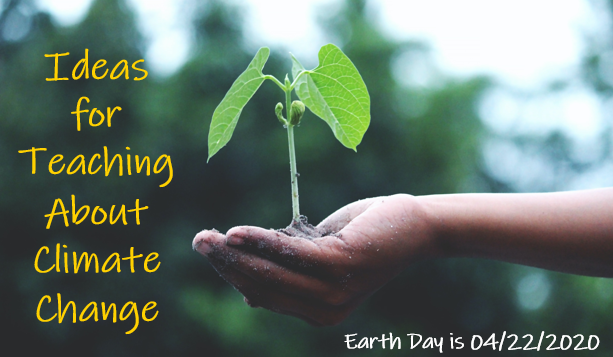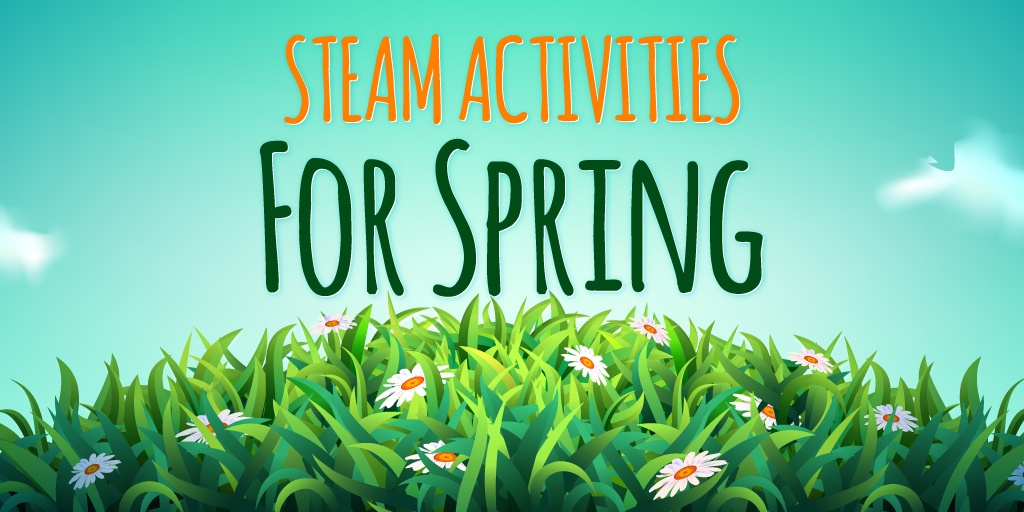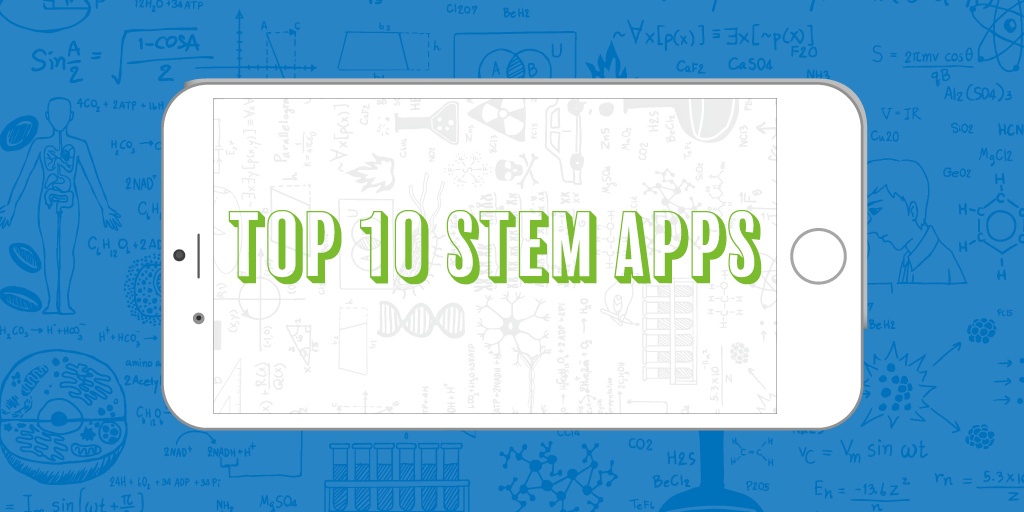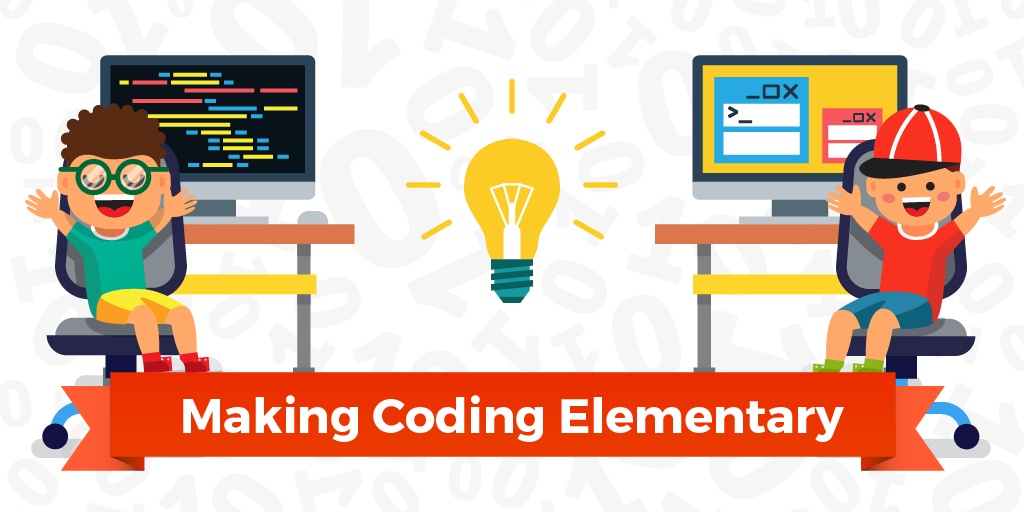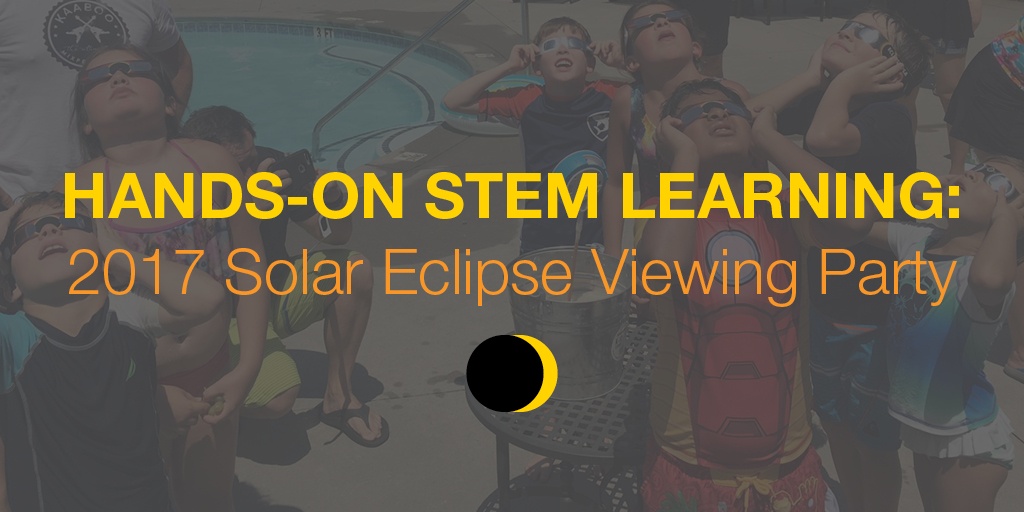You may have seen media stories of the air being clearer since stay-at-home directives have been implemented in different areas of the world (Los Angeles, India). NASA satellite data actually shows a 30-percent decrease in air pollution over the northeast United States (click on the link to view slider image: Drop in Air Pollution). What does this all mean for our climate? How are your children and/or students reacting to the changes? Do they realize there are changes at all? This may be an opportune time to include climate change into your instructional plan, especially with the focus of Earth Day 2020 being climate action. So how can you do it? Here are 7 ideas to try:
Topics: Education Technology, Activities, Science Lessons, STEM Lessons, collaborative learning, Labdisc, STEM, STEAM, climate change
Now that spring has sprung, it’s the perfect time to get outside and try some fun educational activities. Science, technology, engineering, art, and math—collectively known as STEAM—are at the forefront in education today, and can sometimes be overwhelming when trying to figure out ways to implement these concepts.
But it doesn’t have to be! Here are six fun ideas for STEAM activities this spring:
Topics: Science Lessons, tips for teachers, STEM, STEAM
February 16 will mark the second annual Boxlight STEM Day (#BLSTEM)—and there are a few new details, so read on to learn more!
First of all, some things won’t change. Just like last year, students will work with their classmates in a hands-on, inquiry-based learning event designed to help them learn critical STEM skills and understand how STEM disciplines apply to the world around them. And as before, Boxlight will provide the lab experiment and the event will involve using our wireless Labdisc portable STEM lab, so it’s less “same old classroom activity” and more “exciting new real-world work.”
Topics: Science Lessons, STEM Lessons, curriculum, STEM
Career growth in STEM fields (science, technology, engineering, and math) shows no sign of slowing down, so how do we ensure that today’s students are ready for the jobs of tomorrow? By incorporating STEM learning into the classroom, we can give our students the tools they need to succeed in the future—and spark interest in these fields.
Topics: Educational Software, Education Technology, Science Lessons, Educational Apps, STEM, STEAM
Coding has become part of the curriculum in many schools across the country—even for our youngest students in elementary schools. Coding has quickly grown over the past few years to be considered a fundamental basic literacy skill as it teaches students to be problem solvers and critical thinkers in a digital world. With an estimated 1.4 million programming job openings over the next 10 years, coding is one of the fastest growing job markets for our students as they move from school to the workplace.
Teaching coding in elementary schools is easy and so much fun. Over the past few years, many companies have created block coding apps, programs, robots, and more to help educators scaffold learning for our younger students. Block programming offers a simplified model of coding, with each block representing different commands. Block codes allow students to easily drag and drop a sequence of blocks together to create actions. Programs fall into the two main categories: Puzzle, where students use blocks of code to move an avatar through a series of mazes; and creation, where students drag and drop blocks of code to create their own program, story, or game.
Topics: Science Lessons, curriculum, 21st Century Skills, tips for teachers, Coding
Hands-On STEM Learning: 2017 Solar Eclipse Viewing Party
On August 21, Boxlight hosted a solar eclipse viewing party for students from Fulton County Schools in Johns Creek, Georgia—and added an inquiry-based learning element to the event through use of the Labdisc portable STEM lab. Nearly two-dozen people attended the viewing party, with children ranging from elementary students to seventh graders along with executives from Boxlight.
Topics: Science Lessons, STEM Lessons, 21st Century Skills, STEM
How Interactive Classroom Technology Is Enhancing Education Through Innovation
If the United States is to continue to be a world leader, we need to develop more scientists. Today’s students must be able to solve tough problems, and helping students develop the four Cs—critical thinking, communication, collaboration, and creativity—is more important than ever. By 2018, there will be more than two million open jobs in STEM (science, technology, engineering, and math) professions; however, only 19 percent of current college degrees are in STEM fields. Even worse, 75 percent of students that do well in science and math decide to not pursue STEM in college. We all need to do a better job of making science and math more stimulating, and help teachers find ways to make the material matter.
Here at Boxlight Mimio, we’re deeply concerned about the shortage of people entering the STEM workforce—I’ve seen statistics that say we’ll need at least one million more STEM professionals over the next decade. Encouraging children to enter these fields is crucial, and we believe that we can help by providing teachers with the tools to incorporate innovative, exciting hand-on STEM projects into the classroom.
In a recent interview with Neil Hughes (The Tech Guy Podcast), we discussed this important topic and what we are doing to support STEM learning.
Enter the Labdisc portable STEM lab.
The Labdisc is a wireless, compact data logger with 15 built-in calibrated sensors and a long battery life—making it a perfect tool to use anywhere, including outside. We designed the Labdisc so that teachers can perform inquiry-based projects in biology, chemistry, physics, environmental science, and geography.
We’re really excited to be working with the Coweta School System in Georgia, where the state’s new science standards are encouraging districts to focus on hands-on, inquiry-based learning. Regina Ahmann, who teaches zoology and AP environmental science at East Coweta High School, is using the Labdisc to study the relationship between temperature and humidity in several locations around her school, including both urban and green spaces. Ahmann told us that she loves that the Labdisc collects data every second. “There’s no possible way my kids could have done that with a thermometer,” she told us. “It’s all recorded and it makes gorgeous graphs. And you can get your big core concept across to students in a real-world framework.”
Real World in the Classroom
Dr. Donald White, Coweta’s science content specialist, has said that his district is using the Labdisc to replicate what students will face in the job market. He hopes that the experiences the product lets students practice will open the door to careers in a variety of science fields.
Boxlight STEM Day—Bringing Science Everywhere
On December 9, our company hosted the first-ever Boxlight STEM Day to encourage students of all socioeconomic levels to consider pursuing STEM careers. We invited five low-income elementary and high schools in Arizona, Georgia, New Mexico, Mexico, and Guatemala to join us for a day of inquiry-based learning so they could understand how STEM skills fit into the larger picture.
All of the schools received a free Labdisc portable STEM lab, and students performed simultaneous experiments and shared their data. The schools have continued to participate in joint experiments, and we hope that many of the students will see that a STEM career is within their reach.
Here at Boxlight, we will continue to develop products that make learning meaningful and help children connect the importance and value of learning math and science to the skills they need to change the world.
What are you doing in your classrooms to connect students to STEM careers? We’d love for you to share below. And if you want to listen to my entire conversation with Neil, click this link: https://player.fm/series/80936/171655376
Want to learn more about the Labdisc portable STEM lab? Visit here now.>>
Topics: Science Lessons, Labdisc, STEM
“For the things we have to learn before we can do them, we learn by doing them.” - Aristotle
As teachers, we know our students learn in many different ways: visual, auditory, tactile, kinesthetic, and social. But most of us teach the way we're most comfortable—and that's not necessarily the way our students learn. It's a missed opportunity if we don't use the way that a student learns best to hook them and get them excited about learning.
Topics: Science Lessons, STEM Lessons, 21st Century Skills, Labdisc, STEM
Why Coding? Part 3: DIY Coding in the Elementary Classroom
As a classroom teacher, you may have heard about the recent push to incorporate more computer science and coding into students’ lives. The problem could be—as it is with most teachers I know—that you feel vastly underqualified to teach anything in that realm. Coding seems like an intimidating subject and something that requires a lot of professional learning before jumping in.
Topics: Science Lessons, STEM Lessons, curriculum, 21st Century Skills, tips for teachers

